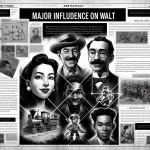-
Índice
“Exploring the depths of conformity and individuality in ‘The Giver’: A journey through memory, emotion, and the quest for true freedom.”
“The Giver” is a dystopian novel by Lois Lowry that explores a seemingly utopian society where emotions, memories, and individuality are suppressed to maintain order and predictability. The story follows a young boy named Jonas, who is selected to inherit the role of the Receiver of Memory, a position that grants him access to the community’s collective memories of pain, joy, and color—experiences that have been eliminated from daily life. As Jonas begins to uncover the complexities of human experience, he grapples with profound themes such as the importance of memory, the value of individuality, and the moral implications of a controlled society. Key characters include Jonas, the wise and enigmatic Giver, and Fiona, Jonas’s friend who represents the innocence of youth. Through its rich narrative, “The Giver” challenges readers to reflect on the significance of choice, freedom, and the human condition.
Summary of The Giver
“The Giver,” a novel by Lois Lowry, presents a thought-provoking narrative set in a dystopian society that has eliminated pain and suffering by enforcing strict conformity and suppressing emotions. The story follows a young boy named Jonas, who lives in a seemingly utopian community where every aspect of life is meticulously controlled. At the age of twelve, Jonas is selected for a unique role known as the Receiver of Memory, a position that sets him apart from his peers and introduces him to the complexities of human experience.
As Jonas begins his training with the current Receiver, an elderly man referred to as The Giver, he discovers the depth of emotions and sensations that have been eradicated from his community. Through the transfer of memories, Jonas learns about love, joy, pain, and sorrow—experiences that his society has chosen to forgo in favor of sameness and predictability. The Giver imparts memories of a vibrant world filled with color, music, and the beauty of nature, contrasting sharply with the monochromatic existence Jonas has known. This awakening ignites a profound internal conflict within Jonas as he grapples with the implications of such knowledge.
As Jonas absorbs these memories, he becomes increasingly aware of the sacrifices made for the sake of societal stability. He witnesses the harsh realities of war, hunger, and loss, which stand in stark opposition to the sterile, emotionless life of his community. This newfound awareness leads Jonas to question the moral foundations of his society, particularly the practice of “release,” a euphemism for euthanasia that is employed to eliminate those who do not conform or who are deemed unfit. The chilling realization that his own infant brother, Gabriel, is at risk of being released due to his slow development further propels Jonas into a state of rebellion against the oppressive norms of his world.
As the narrative unfolds, Jonas’s relationship with The Giver deepens, revealing the bond formed through shared experiences and understanding. The Giver, burdened by the weight of memories and the knowledge of what humanity has sacrificed, becomes a mentor and confidant to Jonas. Together, they explore the possibility of change, contemplating the potential for a more authentic existence that embraces the full spectrum of human emotions.
Ultimately, Jonas’s journey culminates in a pivotal decision. Faced with the choice to either accept the status quo or seek a path toward liberation, he chooses to escape the confines of his community. This act of defiance symbolizes his rejection of a life devoid of true feelings and experiences. As he flees, Jonas carries with him the memories and emotions that have been denied to his society, hoping to find a place where individuality and freedom can flourish.
In conclusion, “The Giver” serves as a poignant exploration of the human condition, examining the delicate balance between safety and freedom, conformity and individuality. Through Jonas’s transformation from an innocent child to a conscious individual, the novel invites readers to reflect on the value of emotions and the importance of embracing the complexities of life. As Jonas embarks on his quest for authenticity, he embodies the universal struggle for self-discovery and the pursuit of a meaningful existence, making “The Giver” a timeless narrative that resonates with audiences across generations.
Exploration of Memory in The Giver
In Lois Lowry’s “The Giver,” the exploration of memory serves as a pivotal theme that underpins the narrative and shapes the characters’ experiences within a seemingly utopian society. The story unfolds in a community that has eradicated pain, suffering, and emotional depth in favor of sameness and predictability. This deliberate suppression of memory is a crucial mechanism through which the society maintains control over its citizens. By eliminating the past, the community seeks to protect its members from the complexities of human experience, yet this very act of forgetting leads to a profound loss of individuality and authenticity.
The protagonist, Jonas, is selected to inherit the role of the Receiver of Memory, a position that grants him access to the collective memories of humanity. As he begins his training with the current Receiver, known as The Giver, Jonas is exposed to a spectrum of emotions and experiences that have been systematically erased from his community’s consciousness. Through this process, he learns about love, joy, pain, and sorrow—elements that are essential to the human experience but are absent in his colorless world. The memories imparted to Jonas serve not only as a means of education but also as a catalyst for his awakening. He begins to understand the richness of life that his society has sacrificed in its pursuit of uniformity.
As Jonas delves deeper into the memories, he grapples with the implications of knowledge and the burden it carries. The memories are not merely relics of the past; they are living experiences that evoke strong emotions and challenge the status quo. For instance, the memory of war introduces Jonas to the concept of suffering, which starkly contrasts with the blissful ignorance of his peers. This newfound awareness ignites a sense of rebellion within him, prompting him to question the ethical foundations of his community’s choices. The juxtaposition of joy and pain becomes a central conflict in Jonas’s journey, as he realizes that true happiness is inextricably linked to the acceptance of suffering.
Moreover, the theme of memory in “The Giver” extends beyond individual experiences to encompass the collective memory of humanity. The Giver, as the keeper of these memories, embodies the weight of history and the responsibility that comes with it. He understands that memories are not just personal; they are communal, shaping the identity and values of society. This understanding highlights the importance of preserving history, as it serves as a guide for future generations. In contrast, the community’s decision to eliminate memory reflects a fear of the past and a desire for control, ultimately leading to a sterile existence devoid of meaning.
As the narrative progresses, Jonas’s relationship with memory evolves, culminating in a profound realization about the nature of freedom and choice. He recognizes that the ability to remember is intrinsically linked to the capacity for love and connection. In a society that prioritizes safety over emotional depth, Jonas’s journey becomes a quest for authenticity and self-discovery. The exploration of memory in “The Giver” thus serves as a powerful commentary on the human condition, emphasizing that the richness of life is found not in the absence of pain but in the acceptance of the full spectrum of human experience. Through Jonas’s awakening, Lowry invites readers to reflect on the significance of memory in shaping identity, fostering empathy, and ultimately, embracing the complexities of life.
The Theme of Choice in The Giver
In Lois Lowry’s novel “The Giver,” the theme of choice plays a pivotal role in shaping the narrative and the experiences of its characters. Set in a dystopian society that prioritizes sameness and conformity over individuality and freedom, the story explores the implications of a world devoid of personal choice. The protagonist, Jonas, lives in a community where every aspect of life is meticulously controlled, from family units to career assignments. This lack of choice is initially presented as a means of ensuring stability and predictability, yet it ultimately reveals the profound consequences of relinquishing personal agency.
As the narrative unfolds, Jonas is selected to become the Receiver of Memory, a position that grants him access to the collective memories of humanity. Through this process, he begins to experience emotions and sensations that have been suppressed in his community, such as love, joy, pain, and sorrow. These memories serve as a stark contrast to the sterile existence of his peers, who have never been allowed to make choices that could lead to emotional depth. The stark realization that choice is integral to the human experience becomes increasingly evident to Jonas as he grapples with the weight of the memories he receives. This awakening highlights the importance of choice in fostering individuality and personal growth.
Moreover, the theme of choice is intricately linked to the concept of freedom. In Jonas’s society, the absence of choice is justified by the belief that it protects citizens from the chaos and suffering that can arise from making decisions. However, this protection comes at a significant cost: the loss of freedom and the richness of life experiences. As Jonas learns about the beauty of love and the pain of loss, he begins to understand that true freedom encompasses the ability to make choices, even if those choices lead to suffering. This realization propels him toward a desire for change, not only for himself but for his entire community.
The contrast between Jonas’s awakening and the complacency of his peers underscores the dangers of a society that prioritizes security over freedom. The citizens of Jonas’s community have been conditioned to accept their lack of choice, believing that it is for their own good. However, as Jonas becomes more aware of the complexities of human emotions and relationships, he recognizes that a life devoid of choice is ultimately a life devoid of meaning. This theme resonates throughout the novel, prompting readers to reflect on the value of choice in their own lives.
In addition to exploring the implications of choice on an individual level, “The Giver” also raises questions about the collective responsibility of society. The community’s decision to eliminate choice in favor of uniformity reflects a broader commentary on the dangers of authoritarianism and the potential consequences of sacrificing personal freedoms for the sake of stability. As Jonas embarks on his journey to reclaim his agency, he symbolizes the struggle against oppressive systems that seek to control and limit human potential.
Ultimately, “The Giver” serves as a poignant reminder of the significance of choice in shaping our identities and experiences. Through Jonas’s journey, readers are encouraged to consider the importance of embracing both the joys and challenges that come with making choices. In a world where the allure of safety can overshadow the value of freedom, Lowry’s narrative invites us to reflect on the essential role that choice plays in defining what it means to be truly human.
Character Analysis of Jonas
In Lois Lowry’s novel “The Giver,” Jonas serves as the central character whose journey encapsulates the themes of individuality, memory, and the quest for knowledge. Initially portrayed as a compliant and dutiful member of his highly controlled society, Jonas’s character undergoes significant transformation as he grapples with the complexities of human experience. At the outset, Jonas is depicted as a typical twelve-year-old boy, eagerly anticipating the Ceremony of Twelve, where he will receive his life assignment. This anticipation reflects his initial acceptance of the community’s values, which prioritize sameness and conformity over personal choice and emotional depth.
As the narrative unfolds, Jonas is selected to become the Receiver of Memory, a role that sets him apart from his peers and thrusts him into a world of profound knowledge and emotion. This pivotal moment marks the beginning of his awakening. The character of Jonas is characterized by his innate curiosity and sensitivity, traits that become increasingly pronounced as he begins to receive memories from The Giver. Through these memories, Jonas experiences a spectrum of human emotions, from joy and love to pain and sorrow, which starkly contrasts with the sterile existence of his community. This exposure to the richness of life ignites a sense of rebellion within him, as he begins to question the ethical implications of his society’s choices.
Moreover, Jonas’s relationship with The Giver plays a crucial role in his character development. The Giver, as the keeper of memories, becomes a mentor to Jonas, guiding him through the complexities of the emotions and experiences that have been suppressed in their community. This mentorship fosters a deep bond between the two characters, highlighting themes of trust and the importance of shared knowledge. As Jonas learns about concepts such as love, family, and freedom, he becomes increasingly aware of the sacrifices made for the sake of societal stability. This realization propels him toward a moral awakening, as he grapples with the implications of living in a world devoid of true feelings and choices.
As Jonas’s understanding deepens, he begins to recognize the limitations imposed by his community’s pursuit of sameness. His character evolves from one of passive acceptance to active resistance, culminating in his decision to escape the confines of his society. This act of defiance is not merely a quest for personal freedom; it symbolizes a broader struggle against the suppression of individuality and the importance of embracing the full spectrum of human experience. Jonas’s journey ultimately reflects the universal human desire for connection, authenticity, and the right to choose one’s own path.
In conclusion, Jonas’s character serves as a powerful vehicle for exploring the themes of memory, individuality, and the moral complexities of choice. His transformation from a compliant boy to a conscious individual underscores the importance of emotional depth and the richness of human experience. Through Jonas, Lowry invites readers to reflect on the value of memories and the necessity of embracing both joy and pain as integral components of life. As he navigates the challenges of his society, Jonas emerges as a symbol of hope and resilience, embodying the belief that true humanity lies in the ability to feel, to remember, and to choose.
The Role of Emotions in The Giver
In Lois Lowry’s dystopian novel “The Giver,” emotions play a pivotal role in shaping the narrative and the experiences of its characters. The society depicted in the book is characterized by a strict adherence to sameness, where individuality and emotional depth are suppressed in favor of uniformity and predictability. This suppression of emotions is a central theme that highlights the importance of feelings in defining human experience. As the protagonist, Jonas, embarks on his journey of self-discovery, the contrast between a life devoid of emotions and one enriched by them becomes increasingly apparent.
Initially, the community in which Jonas lives has eliminated emotions to maintain order and prevent conflict. The inhabitants are conditioned to suppress their feelings, leading to a sterile existence devoid of passion, love, and even pain. This emotional numbness is evident in the relationships between characters, which lack depth and authenticity. For instance, the concept of “family” is reduced to mere functionality, as parents are assigned children rather than forming bonds through love and affection. This absence of genuine emotional connections creates a society that is efficient yet profoundly unfulfilling.
As Jonas begins his training with The Giver, he is introduced to a spectrum of emotions that have been systematically eradicated from his community. Through the memories shared with The Giver, Jonas experiences joy, sorrow, love, and even despair. These emotions awaken a sense of individuality within him, prompting him to question the values and practices of his society. The memories serve as a catalyst for Jonas’s transformation, illustrating how emotions are integral to the human experience. The richness of these feelings not only enhances his understanding of life but also deepens his empathy for others, allowing him to appreciate the complexities of human existence.
Moreover, the novel underscores the idea that emotions are essential for personal growth and moral development. As Jonas grapples with the weight of the memories he receives, he becomes increasingly aware of the consequences of a life devoid of emotional depth. The pain associated with loss and suffering, while difficult to bear, is portrayed as a necessary aspect of life that contributes to one’s character and resilience. In contrast, the community’s choice to eliminate such experiences results in a superficial existence, where individuals are unable to learn from their mistakes or develop a sense of compassion.
The climax of the story further emphasizes the significance of emotions when Jonas decides to escape the confines of his community. His choice is driven by a profound understanding of the value of emotions, as he yearns for a life filled with authentic experiences, both joyful and painful. This act of rebellion against the societal norms reflects his desire to reclaim his humanity and embrace the full spectrum of feelings that define existence. In this way, Lowry illustrates that the ability to feel is not merely a burden but a gift that enriches life and fosters connections among individuals.
Ultimately, “The Giver” serves as a poignant reminder of the essential role emotions play in shaping our identities and relationships. Through Jonas’s journey, readers are invited to reflect on the importance of embracing both the joys and sorrows of life. The novel challenges the notion of a utopian society devoid of emotional complexity, suggesting instead that true fulfillment lies in the acceptance of our emotional selves. In doing so, Lowry advocates for a world where feelings are not only acknowledged but celebrated as a fundamental aspect of what it means to be human.
Dystopian Society in The Giver
In Lois Lowry’s “The Giver,” the narrative unfolds within a meticulously constructed dystopian society that initially appears to be a utopia, characterized by its emphasis on sameness, order, and predictability. This society has eradicated pain, suffering, and emotional depth in favor of a controlled existence where every aspect of life is regulated. The community’s commitment to uniformity is evident in its strict adherence to rules, which govern everything from family structures to career assignments. As a result, individuality is suppressed, and citizens are conditioned to accept their roles without question, leading to a profound loss of personal freedom and authentic human experience.
The protagonist, Jonas, serves as a lens through which the reader can explore the implications of such a society. Initially, Jonas is a compliant member of the community, embracing the values instilled in him. However, as he is selected to inherit the role of the Receiver of Memory, he begins to uncover the stark contrasts between his world and the rich tapestry of human experience that has been systematically eliminated. Through his training with The Giver, Jonas is exposed to memories of joy, love, pain, and sorrow—emotions that his society has deemed unnecessary and dangerous. This awakening prompts him to question the very foundations of his community, revealing the inherent flaws in a system that prioritizes safety and sameness over the complexities of human emotion.
The theme of memory plays a crucial role in illustrating the consequences of a society that seeks to erase the past. In “The Giver,” memories are not merely recollections; they are the essence of what it means to be human. The absence of memory in Jonas’s community leads to a superficial existence devoid of depth and meaning. As Jonas receives memories from The Giver, he begins to understand the importance of both pleasure and pain in shaping identity and fostering empathy. This realization underscores the novel’s central message: that the richness of life is found in its contrasts, and that the ability to feel deeply is essential to the human experience.
Moreover, the theme of choice is intricately woven into the fabric of the narrative. In Jonas’s society, choices are made for individuals, stripping them of autonomy and agency. The community’s leaders believe that by eliminating choice, they can prevent conflict and suffering. However, this belief is fundamentally flawed, as it disregards the inherent value of personal freedom. As Jonas grapples with the weight of his newfound knowledge, he recognizes that the ability to choose—whether it leads to joy or sorrow—is a vital aspect of being human. This realization propels him toward a courageous decision to escape the confines of his community in search of a life filled with authentic experiences.
In conclusion, “The Giver” presents a thought-provoking exploration of a dystopian society that sacrifices individuality, memory, and choice in the name of stability and safety. Through Jonas’s journey, readers are invited to reflect on the significance of emotions and the importance of embracing the full spectrum of human experience. The novel serves as a poignant reminder that a life devoid of pain is also a life devoid of joy, and that true fulfillment lies in the acceptance of both. As Jonas ultimately seeks to reclaim his humanity, he embodies the struggle against a system that prioritizes conformity over the richness of individual existence, leaving readers to ponder the delicate balance between safety and freedom in their own lives.
The Significance of Color in The Giver
In Lois Lowry’s novel “The Giver,” the significance of color serves as a profound symbol that underscores the themes of individuality, emotion, and the richness of human experience. The narrative unfolds in a dystopian society that has eliminated color, along with other aspects of life, in its pursuit of sameness and control. This absence of color reflects the community’s broader suppression of emotions and choices, creating a sterile environment devoid of the vibrancy that color represents. As the protagonist, Jonas, begins to perceive color through his unique gift, it becomes a pivotal element in his journey toward self-discovery and awakening.
Initially, the community’s lack of color signifies a broader theme of conformity. The citizens live in a world where everything is uniform, from their clothing to their daily routines. This uniformity is designed to eliminate conflict and ensure predictability, but it also strips away the beauty and diversity that color brings to life. As Jonas receives memories from The Giver, he experiences the first glimpses of color, which serve as a stark contrast to the monochromatic existence he has known. The introduction of color into Jonas’s life symbolizes the awakening of his senses and emotions, allowing him to appreciate the world in a way that was previously denied to him.
Moreover, color in “The Giver” represents the spectrum of human emotions. In a society that prioritizes sameness, feelings such as love, joy, and even sorrow are suppressed to maintain order. The absence of color parallels the absence of deep emotional experiences, as the community members are conditioned to avoid strong feelings. When Jonas begins to see colors, he also starts to feel emotions more intensely. For instance, the vibrant red of an apple or the warm hues of a sunset evoke feelings of desire and beauty, which are foreign to him in his colorless world. This awakening to color and emotion highlights the importance of experiencing life fully, suggesting that true humanity lies in the ability to feel and express a wide range of emotions.
Furthermore, the significance of color extends to the theme of choice and individuality. In Jonas’s society, the absence of color is a metaphor for the lack of personal freedom. The community’s rigid structure dictates every aspect of life, from family units to career assignments, leaving little room for personal expression. As Jonas begins to see color, he also begins to understand the concept of choice. The ability to choose, whether it be the color of one’s clothing or the path one wishes to take in life, is a fundamental aspect of individuality. Through his experiences, Jonas learns that the richness of life is found in the choices we make, and that these choices are often accompanied by the vibrant colors of our emotions and experiences.
In conclusion, the significance of color in “The Giver” is multifaceted, serving as a powerful symbol of individuality, emotion, and the richness of human experience. As Jonas navigates his journey from a colorless existence to one filled with vibrant hues, he uncovers the deeper meanings of life that his society has sought to suppress. The introduction of color not only enhances his understanding of the world but also emphasizes the importance of embracing the full spectrum of human emotions and the freedom to make choices. Ultimately, Lowry’s exploration of color invites readers to reflect on the value of diversity and the profound impact that emotions and individuality have on the human experience.
PERGUNTAS E RESPOSTAS
1. **What is the main premise of “The Giver”?**
“The Giver” is set in a dystopian society that has eliminated pain and suffering by enforcing strict conformity and suppressing emotions. The story follows a young boy named Jonas who is selected to inherit the position of Receiver of Memory, where he learns about the complexities of human experience.
2. **Who is the protagonist of “The Giver”?**
The protagonist is Jonas, a 12-year-old boy who begins to question the values and structure of his society after receiving memories from The Giver.
3. **What role does The Giver play in the story?**
The Giver is the current Receiver of Memory who transmits the community’s past memories to Jonas, helping him understand the depth of human emotions and experiences that have been suppressed in their society.
4. **What is a major theme in “The Giver”?**
A major theme is the importance of individuality and the value of emotions. The story explores how a society that prioritizes sameness sacrifices personal freedom and the richness of human experience.
5. **How does the theme of memory play a role in the narrative?**
Memory is central to the narrative as it represents the collective experiences of humanity. Through memories, Jonas learns about love, pain, joy, and sorrow, which are essential for a full life.
6. **What is the significance of color in “The Giver”?**
Color symbolizes the vibrancy of life and emotions that the community has chosen to suppress. Jonas’s ability to see color represents his awakening to the complexities of existence.
7. **What is the conclusion of “The Giver”?**
In the conclusion, Jonas escapes the community in search of a life filled with genuine emotions and experiences, leaving behind the constraints of his society. The ending is ambiguous, suggesting both hope and uncertainty about his future.In conclusion, “The Giver” explores the complexities of a seemingly utopian society that sacrifices individuality and emotional depth for the sake of sameness and control. Through the journey of Jonas, the protagonist, the novel delves into themes of memory, freedom, and the importance of human emotions. The characters, including The Giver and Jonas’s family, illustrate the struggles between conformity and the desire for a more authentic existence. Ultimately, the story serves as a poignant reminder of the value of choice and the richness of human experience.







